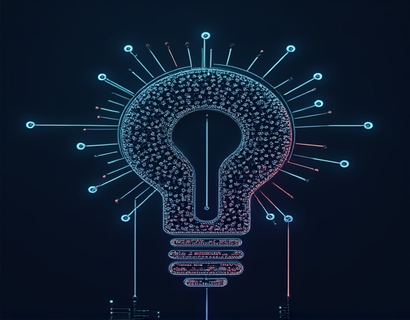AI Chat Interface: Revolutionizing Access to Legal Insights
The integration of Artificial Intelligence in the legal sector has given rise to a transformative tool: the AI chat interface. This innovative platform is redefining how individuals and professionals access legal insights, streamlining the journey to informed decision-making. By harnessing the power of AI technology, this chat interface provides instant and reliable access to a wealth of legal knowledge, making it easier to navigate the often complex landscape of legal concepts and services.
Understanding the Need for AI in Legal Services
The legal industry has traditionally been characterized by its complexity and the high level of expertise required to navigate its intricacies. For both individuals and professionals, seeking legal advice often involves overcoming significant barriers, including high costs, long wait times, and the need to understand sophisticated legal jargon. The introduction of AI-driven chat interfaces addresses these challenges by offering a more accessible, efficient, and user-friendly approach to legal insights.
How AI Chat Interfaces Work
At the core of this technology is natural language processing (NLP), a subset of AI that enables machines to understand, interpret, and respond to human language in a meaningful way. When a user interacts with the AI chat interface, the system processes the input, analyzes it against a vast database of legal information, and provides relevant responses or directs the user to appropriate resources. This real-time interaction mimics a conversation with a legal expert, making complex legal information more approachable.
Key Components of AI Chat Interface Technology
- Natural Language Processing (NLP) for understanding and generating human-like text
- Machine Learning algorithms to improve response accuracy over time
- Extensive legal databases to draw from for accurate information
- User-friendly interface to facilitate easy interaction
These components work in harmony to ensure that users receive accurate, relevant, and timely legal insights, thereby simplifying the decision-making process.
Benefits of AI Chat Interfaces for Legal Insights
The advantages of using an AI chat interface for legal insights are manifold. Firstly, accessibility is significantly enhanced. Users can receive legal information anytime, anywhere, without the need for physical presence or office hours. This 24/7 availability is particularly beneficial for those in urgent need of legal advice or support.
Secondly, cost-effectiveness is a major benefit. Traditional legal consultations can be expensive, often deterring individuals and small businesses from seeking the advice they need. AI chat interfaces reduce these costs by providing free or low-cost access to legal insights, making quality legal guidance more democratized.
Moreover, the efficiency of AI chat interfaces cannot be overstated. Users get instant responses to their queries, saving time that would otherwise be spent waiting for appointments or searching through legal documents. This speed and convenience are crucial in today's fast-paced world, where timely information can make a significant difference in legal outcomes.
Enhancing Legal Decision-Making
The ultimate goal of an AI chat interface is to empower users to make informed decisions. By providing clear, concise, and accurate legal information, users can better understand their options, potential outcomes, and the implications of their choices. This level of insight is invaluable, especially in complex legal matters where the stakes are high.
For professionals, this means more confident decision-making in areas such as contract negotiation, compliance, and risk management. For individuals, it translates to better understanding of personal legal rights and obligations, from real estate transactions to family law issues.
Case Studies and Success Stories
Several organizations and platforms have already begun integrating AI chat interfaces into their legal services, yielding impressive results. One notable example is a legal tech startup that implemented an AI chatbot to assist users with basic legal queries related to employment law. Within the first six months, the chatbot handled over 10,000 interactions, with users reporting a 75% increase in their understanding of employment rights and a significant reduction in the time taken to resolve their issues.
Another instance involves a large law firm that introduced an AI-powered chat interface to complement its human legal consultants. The firm saw a 40% increase in client satisfaction due to the faster response times and the ability to handle a higher volume of inquiries without compromising on quality.
Challenges and Considerations
While the benefits are clear, there are also challenges and considerations to address when implementing AI chat interfaces in legal services. One major concern is the accuracy and reliability of the information provided. Legal matters are highly nuanced, and misinformation can lead to poor decision-making. To mitigate this, continuous training and updating of the AI models with the latest legal data are essential.
Another consideration is the ethical use of AI. Ensuring user privacy and data security is paramount. Legal information is sensitive, and robust measures must be in place to protect user data from breaches and misuse.
Additionally, there is a need to balance AI assistance with human expertise. While AI can handle routine inquiries and provide general information, complex legal issues still require the nuanced judgment of human legal professionals. The AI chat interface should be seen as a tool to augment, not replace, human legal expertise.
Future Trends in AI-Driven Legal Insights
The future of AI in legal services is promising, with several trends shaping its evolution. One significant trend is the integration of AI with other technologies such as blockchain and the Internet of Things (IoT). These integrations can further enhance the accuracy and relevance of legal insights by incorporating real-time data and ensuring transparency in legal transactions.
Another trend is the personalization of legal services through AI. By analyzing user behavior and preferences, AI chat interfaces can offer tailored legal advice and resources, making the legal journey even more user-centric.
Furthermore, the global expansion of legal tech platforms is expected to increase, making high-quality legal insights accessible to a broader audience, including underserved regions and communities.
Conclusion
The AI chat interface represents a significant leap forward in making legal insights more accessible, efficient, and user-friendly. By leveraging advanced AI technology, this platform empowers individuals and professionals to navigate the legal landscape with greater confidence and informed decision-making. As the technology continues to evolve, it promises to further transform the legal industry, making quality legal guidance available to all.










































